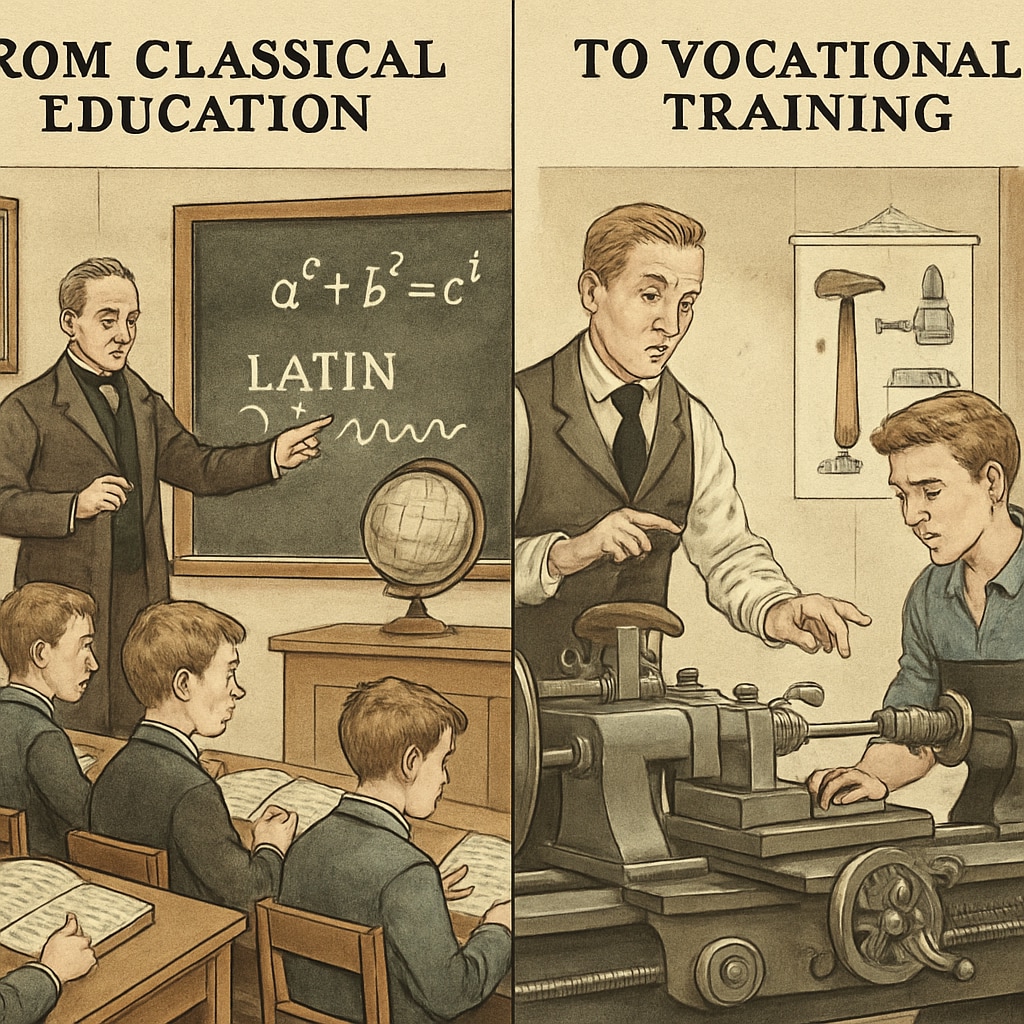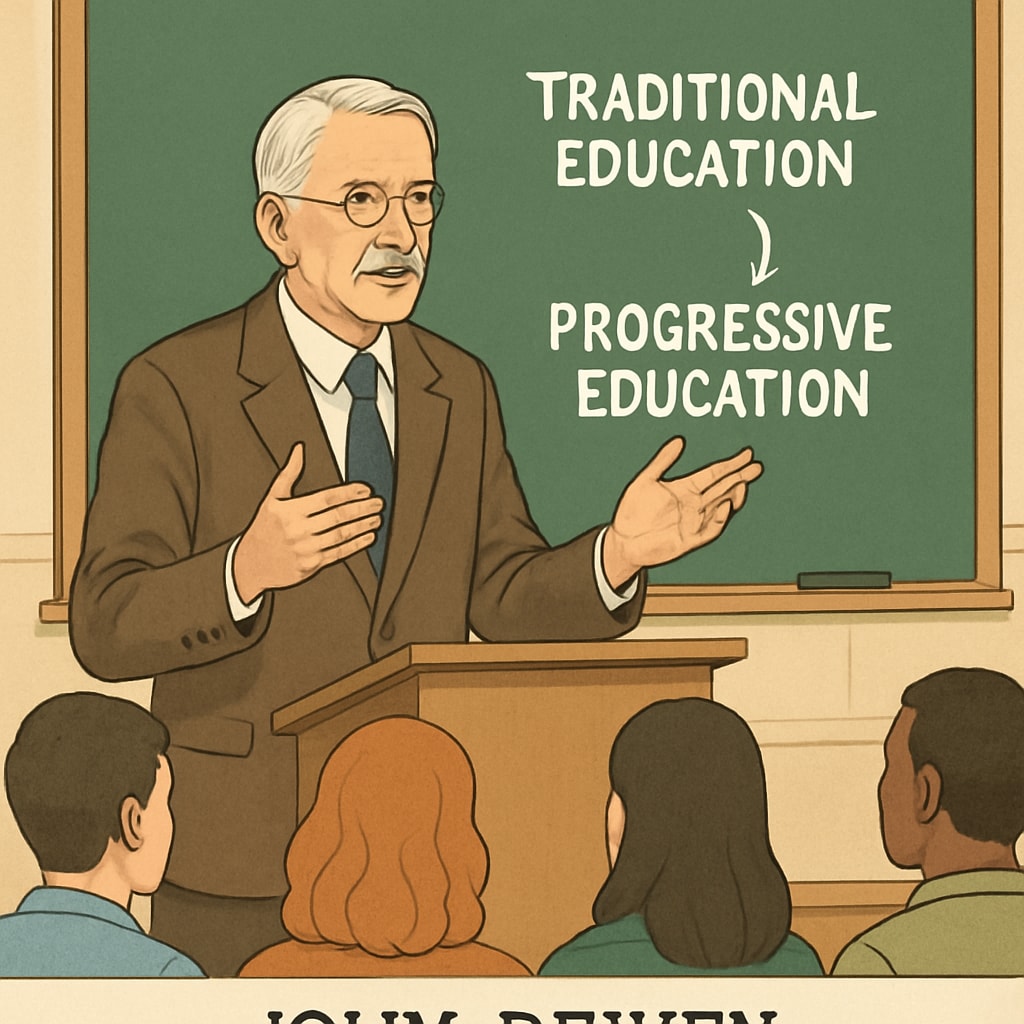Throughout history, classical education has been a cornerstone of intellectual development, shaping the minds of scholars and leaders for centuries. However, the decline of classical education as a mainstream educational model has been driven by significant historical changes, including industrialization, pragmatic ideologies, and the expansion of mass education systems. This article explores these transformative forces and discusses how elements of classical education might be integrated into modern educational frameworks.
The Industrial Revolution: A Turning Point for Education
The Industrial Revolution, spanning the late 18th and early 19th centuries, fundamentally altered societal priorities. As technologies advanced and economies shifted to industrial production, the demand for laborers with practical skills grew. Classical education, which emphasized the study of ancient languages, philosophy, and rhetoric, was deemed less relevant in the face of these new economic realities.
Schools began adapting their curricula to meet the needs of industrial societies. Vocational training and technical subjects took precedence over the humanities, which were often viewed as luxuries rather than necessities. This shift marked the beginning of classical education’s marginalization in favor of utilitarian models.

Pragmatism and the Rise of Modern Educational Philosophy
The emergence of pragmatism as a dominant philosophical trend in the late 19th and early 20th centuries further eroded the foundations of classical education. Pragmatism, championed by thinkers like John Dewey, emphasized practicality, adaptability, and experiential learning over traditional academic disciplines. As a result, education systems increasingly prioritized skills and knowledge that were directly applicable to everyday life and work.
Classical education, with its focus on abstract concepts and theoretical study, was criticized for being out of touch with modern societal needs. This philosophical shift led to the widespread adoption of progressive education models, which emphasized critical thinking and problem-solving but often excluded the classical curriculum.

Mass Education and Accessibility: A Double-Edged Sword
The 20th century saw the rapid expansion of mass education systems, driven by the belief that education should be accessible to all. While this democratization of education was undoubtedly a positive development, it also contributed to the decline of classical education. The rigorous and specialized nature of classical curricula was seen as incompatible with the goal of providing universal education.
In pursuit of accessibility, many schools adopted standardized curricula designed for broad applicability, often at the expense of depth and intellectual challenge. Subjects like Latin and Greek were gradually removed from school programs, replaced by more universal and practical topics.
- Mass education prioritized scalability over specialization.
- Classical education was perceived as elitist and impractical.
- Standardized testing further sidelined nuanced academic disciplines.
As a result, classical education became increasingly confined to private institutions and niche academic contexts.
Reviving the Essence of Classical Education in the Modern Era
Despite its decline, the core principles of classical education—critical thinking, ethical reasoning, and intellectual rigor—remain highly relevant. Modern educators and policymakers are beginning to recognize the value of integrating these principles into contemporary curricula.
For example, interdisciplinary programs that combine humanities with modern subjects, such as technology and business, offer a way to revive classical education’s essence while adapting to current societal needs. Additionally, the rise of liberal arts colleges and classical charter schools reflects renewed interest in cultivating well-rounded thinkers.
However, challenges remain. Balancing the demands of practicality with the richness of classical education requires innovative approaches and sustained commitment from educators and institutions.
As a result, the future of classical education lies not in returning to its traditional form but in reimagining its values within the context of modern educational systems.
Readability guidance: This article uses short paragraphs for clarity, incorporates lists to summarize key points, and balances active and passive voice for an engaging and professional tone.


